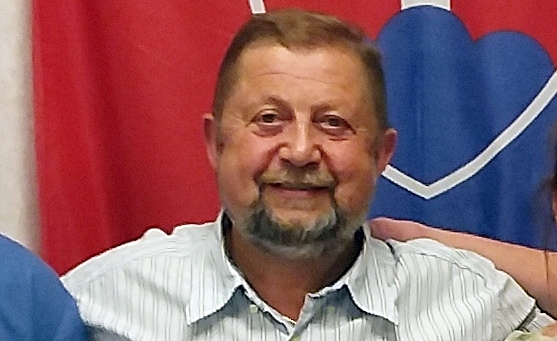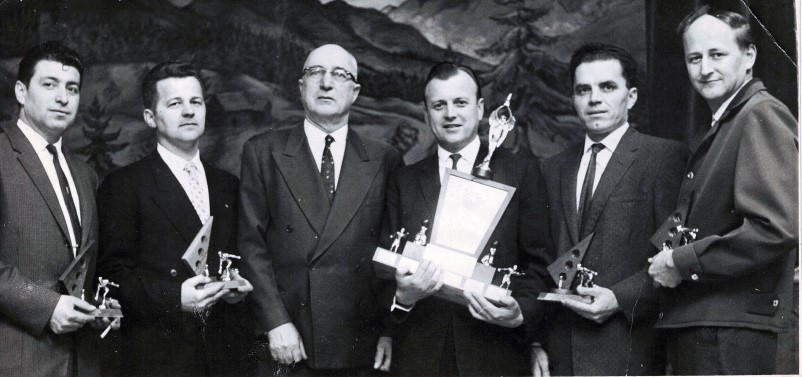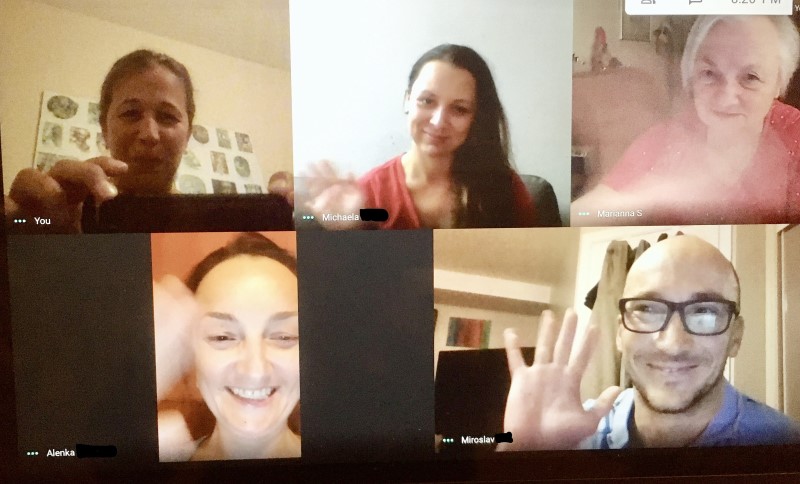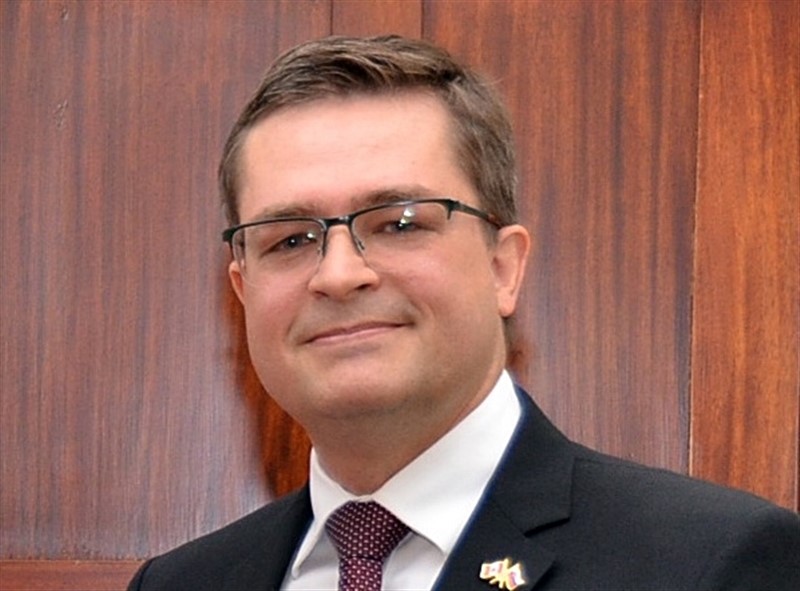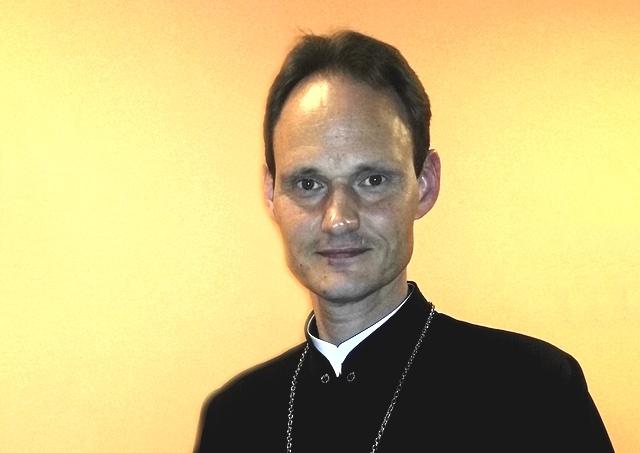During a meeting with the members and friends of Branch 65 of the Canadian Slovak League in Calgary, Dr. Štefan Harabin gave the Canadian Slovak the following interview:
Canadian Slovak: Dr. Harabin, we are very pleased that you could visit us in Calgary. The subtitle of your new book From the Heart and Conscience is "Dialogues about the problems we are forbidden to talk about". It is a problem for the society as a whole, that there are more and more topics that people are not free to express themselves, because they are immediately labeled, bullied, or even thrown out of work, etc. What can be done about it?
Štefan Harabin: I watch the situation both in Slovakia and within the European Union and, without doubts, it can be called "Dictatorship of the Permitted Opinion" from Brussels. The politicians impose certain solutions at the Union level, which are then also taken up by individual Member State representatives, solutions that are often in conflict with Union law as well as the national law of individual countries. And they will make them as standards that society must accept. Take, for example, the migration and asylum policy, which is the exclusive competence of the Member States of the European Union, and here someone wanted to dictate us quotas. Orbán stood up, but there was no decisive position against this in Slovakia, only some vacillation. European politicians at the central level have begun to threaten us with fines, then that we would have to pay fees for each migrant, then even to take away the eurofunds, which are what we must receive from the European Union, which is our money, and they turned it into a tool for extortion. Of course, such a policy of alleged infringement is also transmitted to the national level, and those who have their opinion, and are not afraid to express themselves, are pacified in different ways, whether through employment, whether by persecution through legal instruments, or subliminal influencing children's consciousness. There are different mechanisms, including bullying by the police, bureaucratic civil servants, and this, of course, is causing resistance in the population. Recently, for example, the Weapons and Ammunition Directive was adopted at the European Commission level. It was supported by everyone, and the intention was clear: to disarm the populations of European countries, because there are many people who have sporting or hunting weapons, not to oppose migrants. This, in turn, is linked to the Migration Directive, and this Directive - and I have made a legal analysis - is clearly contrary to EU law, since it is in the exclusive competence of the Member States, because it is a matter of public security, rights and order, which also includes weapons and ammunition. Thus, we are in a state where, at the central level, politicians who should be the model of compliance with Union law as well as national law, violate these laws themselves. And they label those who are defending their rights as people who need to be sanctioned and destroyed. Defenders of rights are persecuted by infringers. This is not normal.
KS: In a normal society, the protector of people's and ordinary citizens’ rights has always been Justice. Does justice also play this role now, in Slovakia and in the European Union?
SH: Of course, politicians are trying to simply privatize, I say it completely openly, the police, and they did this through subordination of the police inspection to the Minister of Interior. Likewise, the prosecution, because the Attorney General was elected in parliament by politicians to whom he had to give some promises. This person then has no free hands to prosecute all crimes. And recently, after politically controlling the Judicial Council and the Supreme Court, those influences have also filtered down into personnel corruption at the level of court officials, which is an extremely dangerous phenomenon. The citizens then get the impression that who has the money, who has the political power, can buy justice. Of course, justice for oneself, not the real justice for all. We are getting into a situation where the law applies only to someone who has money, and those who have the money and political power can trample on the rights, violate the law, violate their responsibilities. Their legal responsibility does not apply, and this gives rise to a distrust of the State itself. And here, too, the overall policy of the European Union is felt, which is in favor of a situation where people who are politically submissive, do not respect the law and the constitution, are appointed to judicial positions. People then complain that the law is not applied, and then Brussels elitists immediately respond: Well, since you do not know and cannot prosecute corruption and thievery through the Attorney General, therefore, you need a European Prosecutor. This is in contradiction with the Constitution of the Slovak Republic, because it is a reduction of state sovereignty. This demonstrates their centralization policy, basically making a strong central core, the tendency is to create a super German-French state and thereby the demise of national states.
KS: You are well known as a very open person who knows constitutional law very well, and just because of you the Slovak parliament passed a law yesterday that says that if a judge became a candidate of a political party, he automatically loses his gavel. And that happened only a few days after the same Parliament approved Mr Procházka – a politician, as a nominee to the Constitutional Court, the Supreme Judicial institution of the Slovak Republic. And of course we know of the previous ambitions of ex-Prime Minister Fico to become the President of the Constitutional Court, which did not pass. Do you think this new law is in line with the Constitution?
SH: You have rightly indicated this because the need to de-politicize the judiciary has been mentioned in the justification for this law, actually a supplementary modification of the Judicial Law. When a judge wants to get elected into parliament and apply law and justice consistently into all new legislation, it is called politicizing the judiciary. But when a politician is elected Judge of the Constitutional Court by the very same deputies, it is all right, that is not the politicization of justice. And even to the Constitutional Court, a court which is above all general courts. This is a complete mockery. They also chose Ms. Pfunder, Secretary of State for the Most-Hid party at the Ministry of Justice. So, the same politicians have approved two politicians into the highest court of the land. But they publicly argue that their motive is depoliticization. And this is after the petitioner of the amendment, who, during the evaluation of nominees by the Constitutional and Legal Committee, attacked some candidates, how they could want to be a candidate for the Constitutional Court when he, as a lawyer, lost some lawsuits in their court, which he thought that he was supposed to win. How is this possible?
This law is evidently unconstitutional because the Constitution clearly defines the manner in which a judge can be suspended: when a judge commits a deliberate offense and a final judgment is given, then the judge's office is extinguished, or if he is deemed unfit on the request of the Judicial Council for age or health reasons, and then must be recalled by the President of the Slovak Republic. The proposed way of suspension is not foreseen by the Constitution and is, therefore, manifestly unconstitutional. And yet they are so brazen that they approved the change by both the coalition and the opposition. They are routinely attacking and denouncing each other, but when it comes to "protection" from Judge Harabin, who could go to Parliament and enforce the rule of law, constitutionality and justice in the adoption of laws, they all have united. But when it comes to the need to adopt laws for society, for citizens, they will not unite there. For example, to allow participation in the Presidential election also by Slovak citizens living abroad.
KS: Even if you object to the constitutionality of this law, the judicial process in Slovakia takes a long time. The parliamentary elections are approaching, so my question is: If you are really left with only these two options, which one would you choose, a gavel, or try to guide justice through politics?
SH: I think the law is obviously unconstitutional and I am primarily obliged, even as a judge, to apply the Constitution. When I am a judge and I have a dispute where I see that the law is clearly contrary to the Constitution, I do not have to suspend the trial and make a petition to the Constitutional Court that the law is contrary to the Constitution. I will apply the Constitution directly. Of course, there is a formal process here, but certainly these unconstitutional practices do not prevent me from simply abandoning those people who have shown me the will and confidence in the establishment of order and law in the State. I will certainly do everything to make their will heard. I'll find legal mechanisms on how to do it. And certainly, I will not let anything go unnoticed and without the onset of constitutional-legal responsibility of those who have approved and voted for it. I am also amazed, for example, by the fact that Kotleba deputies abstained. It is so abnormal. When I know something is unconstitutional, I cannot abstain. You know, it irritates me a bit, because I thought that MPs for the LSNS political party really aspired to defend Slovakia's interests in law, rule of law, and justice. In this context, I can only recall one thing: two years ago, there was a proposal to abolish the political party LSNS. When they asked me whether it was okay, I could say, you know, I can't comment because I'm a Supreme Court judge, maybe I'll be dealing with the case, etc. I could abstain. Yet, as the only constitutional official in Slovakia I said the next day, after I read the proposal, that it was a political abomination, it is a proposal that will never be successful. I even analyzed the findings of the German Constitutional Court, which examined a certain extreme-fascist party there, which is not the case of LSNS at all, and it was not abolished by the German Constitutional Court. Even then, I did not avoid the question of realization of law and constitutionality. And these people who are obliged, without exception, to uphold constitutionality and law, they purposefully suddenly abstain from voting. It surprised me. This is not about personal interests, it is about the State, it is about the Constitution, it is about the Law. The law must never be accepted for or against a particular person.
KS: How do you see Slovakia will be in ten years?
SH: I think the situation is extremely serious in the European Union, too. Finally, I am convinced that there will rise healthy forces in the European Union, representatives of strong national states who will reform the European Union from an organization that is currently trying to integrate national states and create a super State of states, to an institution that will be an international organization to serve the member nation states, because it was created for this purpose. It was not designed to force the Member States and their people to slavishly serve the European Union and to the globalist goals. The European Union must serve us, all citizens. A strong cooperation can form at an economic level, it cannot prevent us from having economic contacts with other, non-EU countries, cooperation can be strengthened to protect the Schengen borders. That's fine. If this cannot be done, we cannot participate in such a project, not because of our fault but the fault of the euro-centrist, globalist bureaucrats who are fighting reforms. These people who promote the current model are the grave diggers of the European Union, not us.
KS: Thank you very much for the interview and wish you a pleasant stay in Canada and a nice flight back to Slovakia.
SH: I also wish all the best to the Canadian Slovaks.
For The Canadian Slovak interviewed Paul Carnogursky


